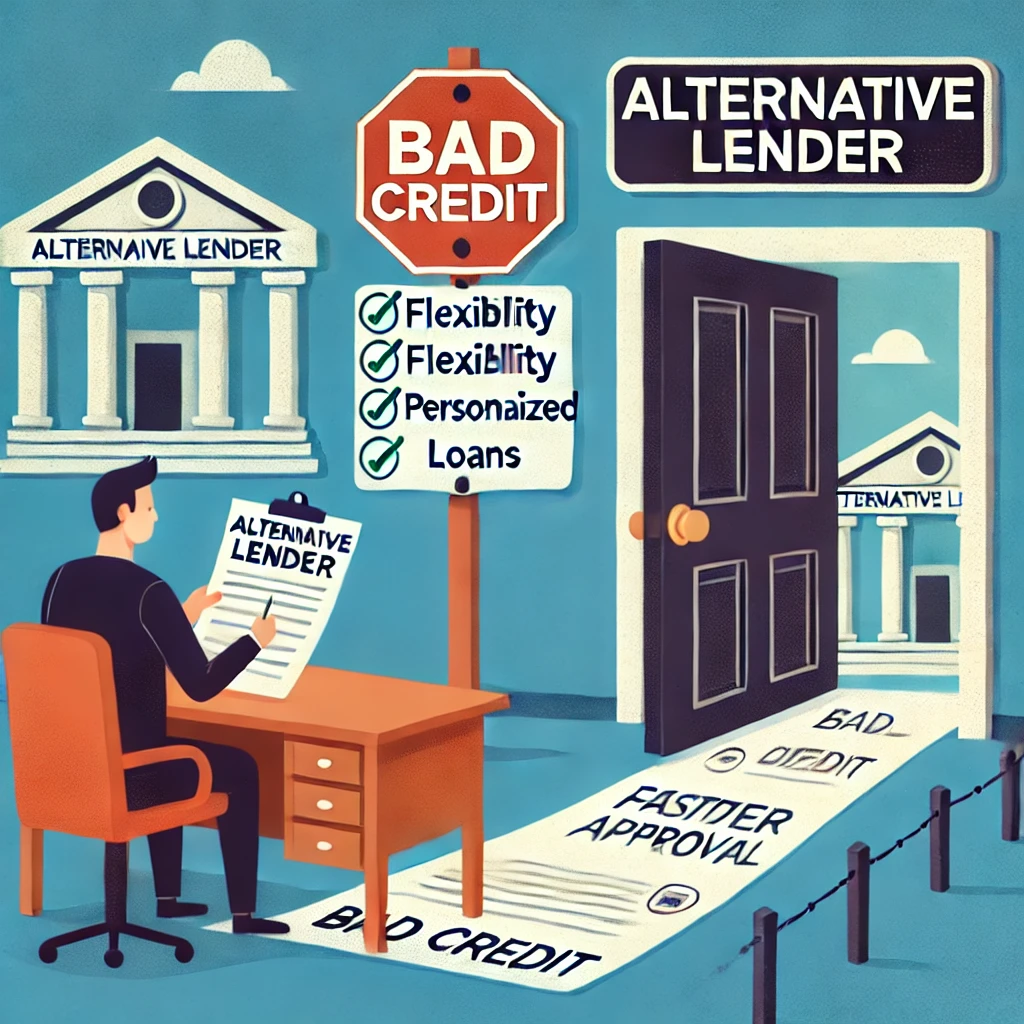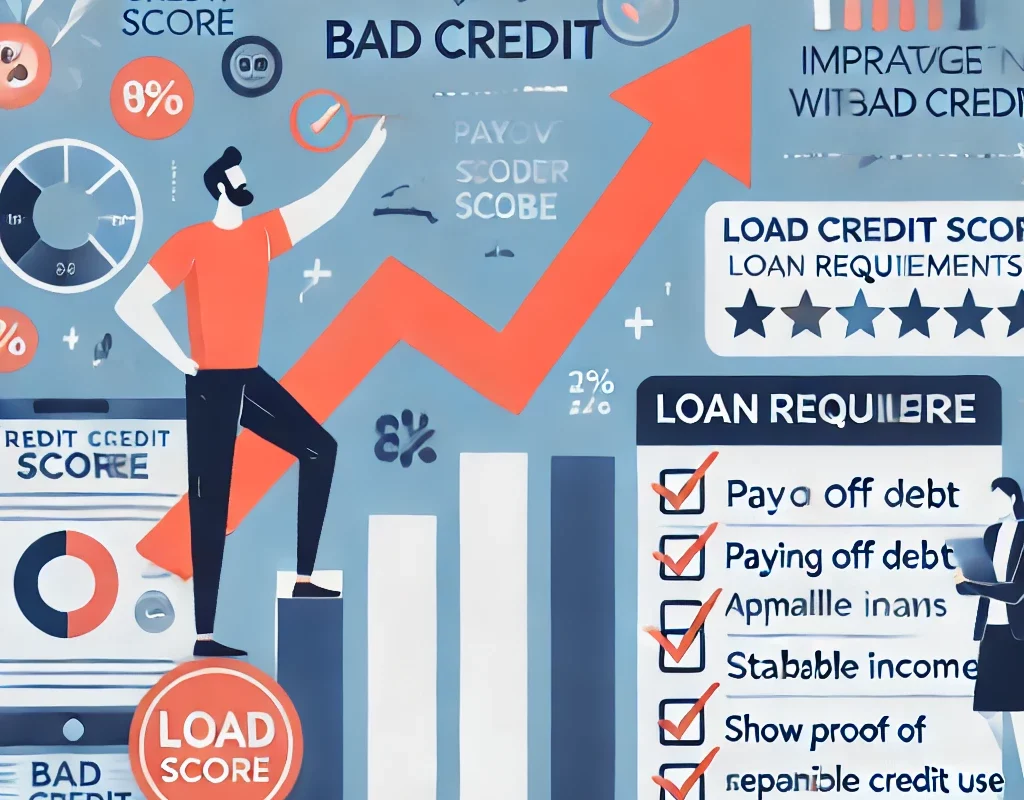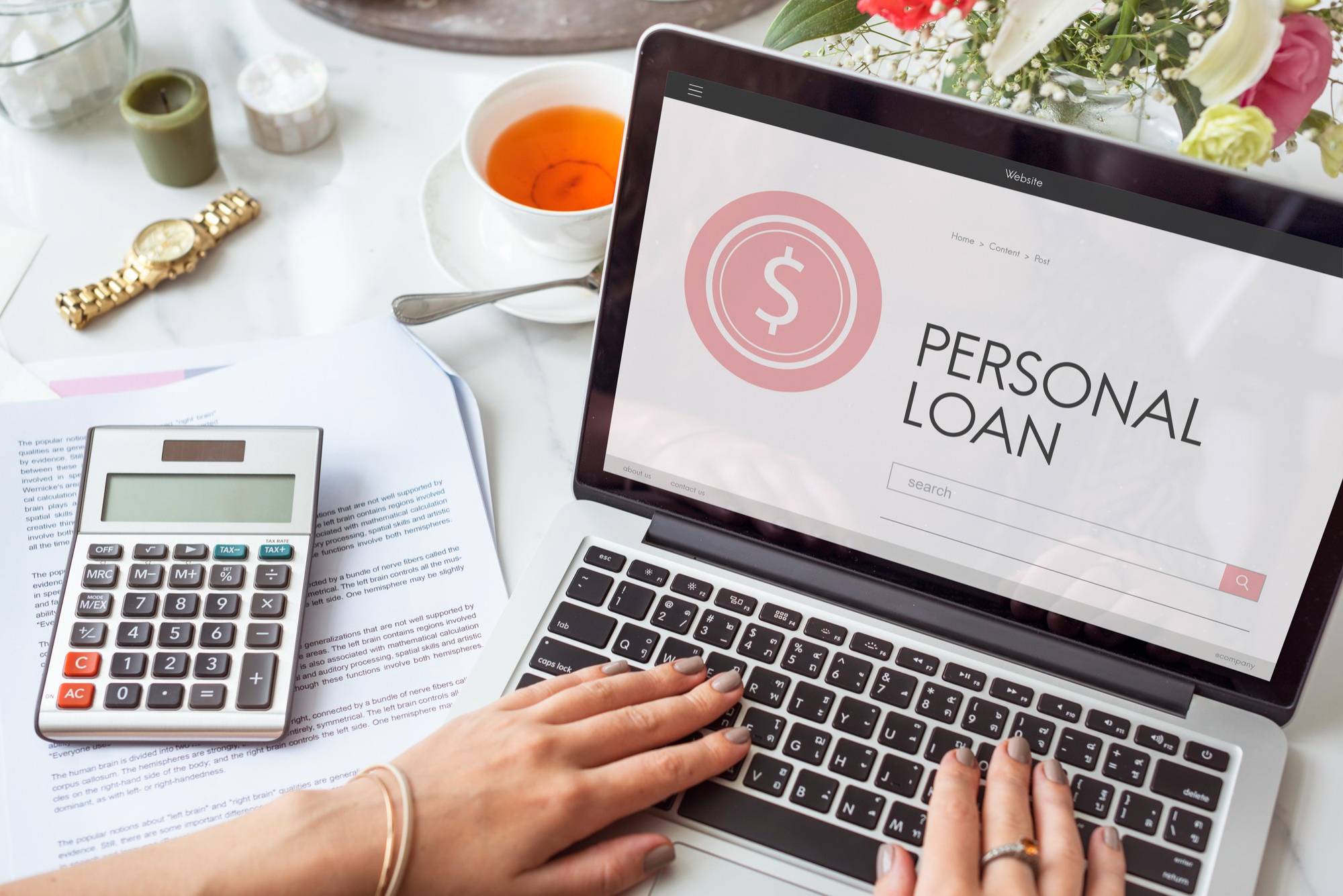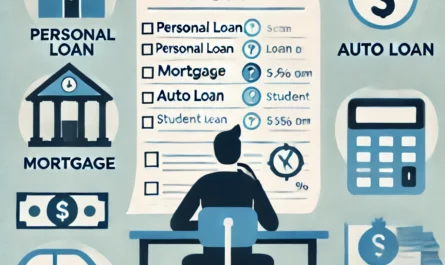Securing a loan when you have bad credit can feel like an uphill battle, but it is not impossible. Lenders often rely on credit scores to evaluate the risk of lending to an individual, but a low score doesn’t have to be a dead end. There are several ways to improve your chances of getting approved for a loan even if your credit history is less than stellar. By adopting strategic financial habits, exploring alternative lending options, and presenting yourself as a trustworthy borrower, you can significantly increase your likelihood of success.
In this article, we’ll explore the different strategies you can use to improve your chances of getting a loan with bad credit and offer practical advice that will help you secure the funds you need.
Understanding Bad Credit Scores and Why They Matter
Credit scores play a significant role in a lender’s decision-making process. These scores, which range from 300 to 850, give lenders insight into your financial habits and reliability. Borrowers with bad credit typically have scores below 580, which indicates a higher level of risk for lenders. Factors such as late payments, high credit utilization, or recent bankruptcies can drag down your score, making it difficult to get approved for traditional loans.
But having bad credit doesn’t mean you’re out of options. Lenders also consider other factors like your income, employment status, and overall debt load. With the right strategies, you can highlight these strengths to improve your chances of getting a loan despite a low credit score.
Evaluate and Improve Your Bad Credit Report
Before applying for a loan, it’s important to review your credit report for any errors or discrepancies. Mistakes such as incorrect account information, outdated data, or fraudulent activity can negatively impact your credit score. By disputing and correcting these errors, you can boost your score and improve your chances of getting approved.
Additionally, take proactive steps to improve your credit score over time. While it may not happen overnight, small improvements can make a significant difference. Focus on paying down existing debts, avoiding late payments, and lowering your credit card balances. These efforts demonstrate to lenders that you’re serious about improving your financial situation.
Consider Applying for Loans with Alternative Lenders with Bad Credit
Traditional banks and credit unions may have stricter lending criteria, but alternative lenders often provide more flexibility for borrowers with bad credit. Online lenders, peer-to-peer lending platforms, and credit unions sometimes offer loans specifically tailored for people with poor credit.
These lenders may have different criteria for approval, such as weighing your income and employment history more heavily than your credit score. While the interest rates may be higher, these loans can provide an opportunity to rebuild your credit while meeting your immediate financial needs.

Look for Secured Loans to Boost Approval Chances
Secured loans require you to put up collateral, such as a car, home, or savings account, to reduce the lender’s risk. By offering collateral, you increase your chances of getting approved for a loan even with bad credit, as the lender has a way to recoup their money if you default on the loan.
Secured loans typically have lower interest rates compared to unsecured loans, making them a more affordable option for borrowers with bad credit. However, it’s crucial to ensure you can make the payments, as failing to do so could result in the loss of your collateral.
Consider Getting a Co-Signer
Having a co-signer with good credit can significantly improve your chances of getting approved for a loan. A co-signer is someone who agrees to take on the responsibility of repaying the loan if you are unable to make the payments. This reduces the risk for the lender, as they can rely on the co-signer’s strong credit history to reassure them of repayment.
Before asking someone to co-sign, ensure they understand the financial responsibility involved. Defaulting on the loan could damage both your credit score and theirs, so it’s essential to have a solid plan for repayment.
Explore Bad Credit Union Loans
Credit unions are member-owned financial institutions that often offer more lenient lending criteria than traditional banks. They may be more willing to work with borrowers who have bad credit, especially if you have a history of responsible financial behavior within the credit union.
Building a relationship with a local credit union can be advantageous. Unlike larger financial institutions, credit unions may take a more personalized approach when reviewing loan applications, considering factors beyond your credit score.
Opt for Smaller Loan Amounts
If you’re having trouble getting approved for a large loan with bad credit, consider applying for a smaller loan amount. Lenders may be more willing to approve a loan that represents less risk, especially if your income and debt levels can comfortably support the monthly payments.
A smaller loan may also come with lower interest rates, making it more affordable to repay. Successfully managing a smaller loan can improve your credit score and help you qualify for larger loans in the future.
Show Proof of Income and Employment Stability
Lenders may be more likely to approve your loan application if you can demonstrate a stable income and long-term employment. Showing that you have a reliable source of income reassures lenders that you will be able to meet your monthly payments, even with bad credit.
If you have recently started a new job or have multiple sources of income, providing documentation such as pay stubs, tax returns, or bank statements can strengthen your loan application.
Pay Down Existing Debts in Bad Credit
One of the best ways to improve your creditworthiness is by reducing your existing debt. High levels of debt not only lower your credit score but also signal to lenders that you may have difficulty managing additional loan payments.
Paying off or consolidating debts can free up your available credit and demonstrate responsible financial behavior. Additionally, lowering your debt-to-income ratio, which compares your total monthly debt payments to your monthly income, can make you more attractive to lenders.
Work with a Bad Credit Counselor
If you’re unsure where to start, consider working with a credit counselor. Credit counseling agencies can provide advice on managing your debts, improving your credit score, and creating a plan to help you qualify for a loan. They may also offer debt management programs, which allow you to consolidate your debts into one manageable payment.
While credit counseling services can’t guarantee loan approval, they can help you get your finances in order and increase your chances of success.
Use Personal Loans to Rebuild Bad Credit
Personal loans can be an effective way to rebuild credit if used responsibly. Some lenders offer personal loans specifically designed for people with bad credit. By making timely payments, you can gradually improve your credit score and gain access to better loan terms in the future.
It’s essential to choose a loan with terms you can comfortably afford. Late or missed payments will further damage your credit, so make sure you have a solid repayment plan in place before taking out a personal loan.

Frequently Asked Questions
What is considered a bad credit score for loan applications?
A credit score below 580 is generally considered bad by most lenders. Scores between 580 and 669 are often labeled as “fair,” and anything above that is seen as good or excellent credit.
Can I get a loan with bad credit without collateral?
Yes, it’s possible to get unsecured loans with bad credit, but the interest rates will likely be higher. Some lenders also look at other factors like income and employment to determine approval.
Does applying for a loan hurt my credit score?
Yes, each loan application results in a hard inquiry on your credit report, which can lower your score by a few points. However, multiple inquiries in a short period are usually treated as a single inquiry if you’re shopping around for the best loan terms.
Is it better to get a loan from a bank or an alternative lender with bad credit?
Banks may have stricter requirements, so alternative lenders could be more flexible for borrowers with bad credit. However, it’s essential to compare loan terms and interest rates to find the best deal.
How can a co-signer help me get a loan?
A co-signer with good credit can reduce the lender’s risk and help you qualify for a loan with better terms. However, both you and the co-signer are responsible for repaying the loan.
How long does it take to rebuild credit after paying off debts?
Rebuilding credit can take time, but you may see improvements in as little as three to six months if you consistently make on-time payments and lower your debt levels.
You Can Also Read : How to Protect Your Home with the Right Homeowners Insurance
Although getting a loan with bad credit can be challenging, it’s not impossible. By understanding your credit score, exploring alternative lenders, and improving your financial habits, you can enhance your chances of loan approval. Start by reviewing your credit report, paying down debt, and demonstrating income stability. With persistence and the right approach, you can overcome the barriers of bad credit and secure the loan you need.



